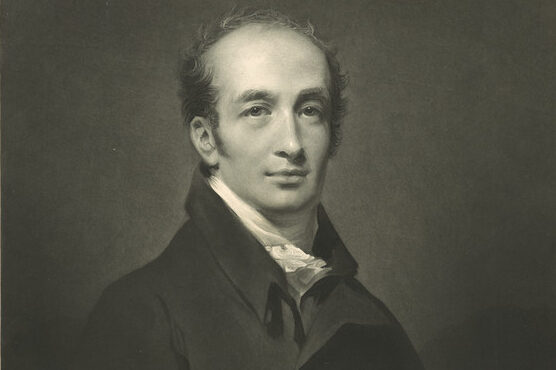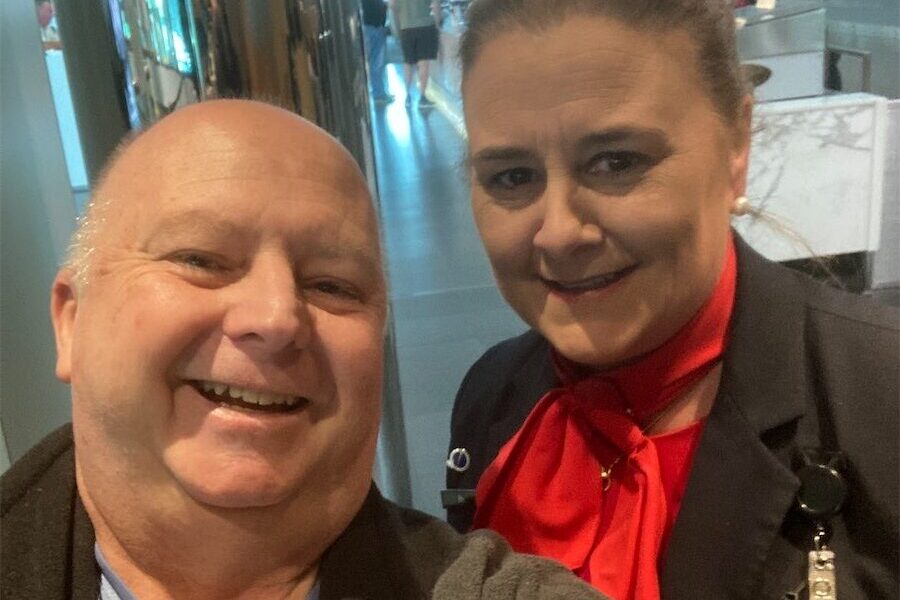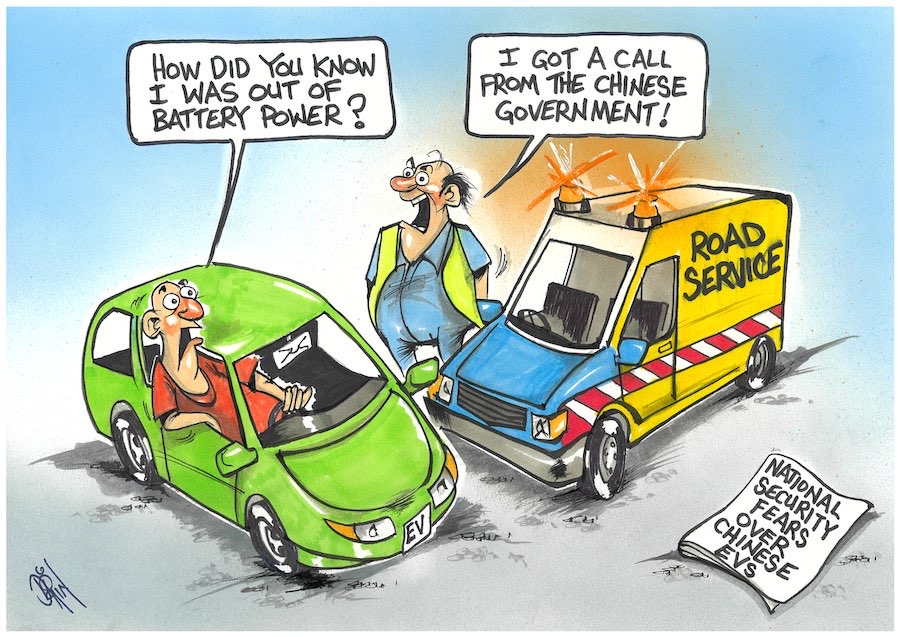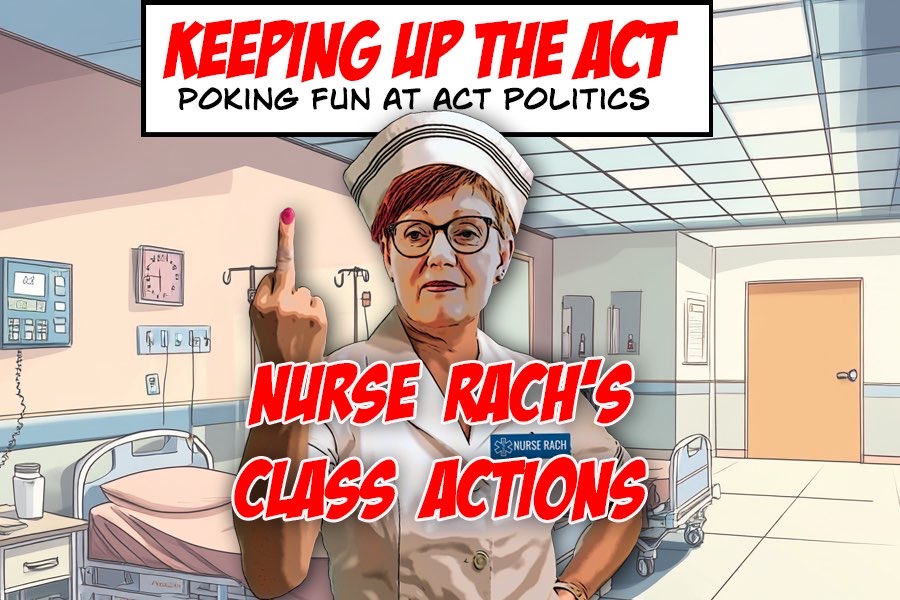“What credible independents usually do is to be independent. They vote in the best interests of their communities. In federal parliament, the existing independents seem to show more commonsense and focus on community needs and national issues more than the major parties do,” says letter writer TONY STEWART.
Several letter writers have raised the issue of what independents would do in the local election if they held the balance of power and how they would operate, with wild accusations that they would be useless.

The intent of some of these writers is to try to persuade people not to vote for independents. They are raising a “dead cat”.
Unlike previous elections there are numbers of credible independents in every electorate. Most have formed parties because this is the only way they can get the numbers to be elected. But, they are independent. All of these are very experienced people in the community and in their lives.
Let’s examine the “dead cat”.
First, in the ACT today the chance of a dead heat in this election given the statistics of the last is so remote as to be irrelevant. The ratio is 16:9. If there was a balance of power or minority government, Cathy McGowan expressed it back in Indi in 2013: “As an independent I will support the government of the day”.
Second, what credible independents usually do is to be independent. They vote in the best interests of their communities.
In federal parliament, both in the lower house and in the Senate, the existing independents seem to show more commonsense and focus on community needs and national issues more than the major parties do.
Local politics in Canberra is stalemated. The Greens/Labor coalition is not threatened. The Liberals offer no genuine opposition. They seem comfortable taking their salaries and squabbling amongst themselves.
I see no chance for change, except voting for credible Independents.
My suggestion is don’t vote for major parties at all. The current secretive and non-consultative government needs a fright. Don’t listen to the “dead cat” people. They want to scare you to maintain the status quo.
Tony Stewart, via email
Free travel timing over the election period?
Only a blind-faith government supporter would not recognise the significance of the timing of the free public transport travel period for two months, including the election date!
The roll-out of the new ticketing system is running many months, if not longer behind schedule so why roll it now in the lead-up to the election? It is nothing more than a crass political decision.
The free fare period won’t make any difference to many passengers, especially young people who don’t pay anyway and simply avoid paying fares with total impunity.
Furthermore, a driver told me this morning on a popular route that there has been no discernible increase in passenger numbers.
The ACT has the lowest percentage recovery of operating costs of any capital city public transport system in Australia and yet the government has the gall to forgo revenue for two months just before an election!
Why will it take nearly two months to install the new ticketing system?
It is yet another example of the inept financial management of this Government, so comprehensively illustrated by Jon Stanhope and Khalid Ahmed on a regular basis.
Colin Lyons, Weetangera
The city/state model is failing Canberrans
Claims by correspondents that many of the ACT problems are caused by the “self-government model” rings partly true, but none offer a way forward.
Self government was inevitable. The federal parliament was not structured to administer a growing city with such unique attributes.
The adopted city/state model was premised on the basis the ACT could enter the federal state funding model at state level given the role of the Commonwealth Grants Commission (CGC) in recognising the ACT’s fiscal constraints thereby offsetting its diseconomies of scale in delivering state-like services.
No such apparatus exists for disbursement of federal funding at the local government (municipal) level, rather, it was widely anticipated the ACT could achieve economies of scale by adopting a blanket outsourced service delivery approach to all five districts without the need for robust local governance entailing separate reporting, councils, or additional elected representatives.
This latter assumption was always the risk factor underpinning the model, which unfortunately has come to fruition.
Yes, the city/state model is failing Canberrans due to a significant neglect of local city services. Benchmark Canberra with any other regional city and the deterioration is obvious.
The dual role as both a city and state authority has led to a disproportionate focus on state-level services. This imbalance is evident in the deteriorating condition of our local suburban infrastructure, poorly maintained streets, roadside kerbs, nature strips, public parks, and community facilities. That said, the system is not terminal.
As the ACT approaches the 500,000 population mark, the CGC under terms of reference from the federal treasurer, via minister for territories, could commission a study that benchmarks the ACT local government operations with a selection of larger local councils elsewhere.
Terms of reference could include a requirement to report on the merits for the resurrection of a municipal fiscus (existed prior to self-government) within the existing ACT government accounting framework, merits of differential rating between the five districts, and overlaid by a reporting framework for the five elected members for each district.
Unfortunately, nobody seeking office in 2024 has foreshadowed any hint of review. The Barr coalition, while aware, is somewhat constrained as the incumbent government, the Liberal Party oblivious to the underlying structural weakness as reflected in their crazy $100m cash splash for even more municipal infrastructure without maintenance capacity to accompany it, while the independents appear totally ignorant on the subject.
Anyone foreshadowing a review will attract my vote in October 2024.
John D Purcell PSM, Kambah
The Greens would be an economic disaster
Please tell me that it is a bad joke that there is a possibility of Shane Rattenbury becoming chief minister.
Talk about getting out of the frying pan into the fire. The Greens would be an economic disaster for Canberra, just as Barr has been.
There must not be majority government in Canberra and a reasonable number of good independents elected. And this from someone who majored in politics and economics at the ANU, worked with various Commonwealth ministers and engaged in politics at first hand, including setting up a community based party.
If the Greens were to get in, I would have to think seriously of turning my vacation in France into a permanent stay.
Ric Hingee, Duffy

Awful irony in ‘terrible’ Canberra prison’s name
Prof Ross Fitzgerald’s superb pieces in print and online about the treatment of imprisoned whistleblower David McBride at the AMC prison is extremely important, not just for residents of the ACT but for all of us throughout the nation.
Fitzgerald’s interventions in McBride’s case are to be applauded, but even more importantly are his disturbing revelations about the widespread mistreatment of prisoners at Alexander Maconochie Centre.
It is an awful irony that this terrible Canberra prison was named in honour of Scottish-born Alexander Maconochie (Lord Meadowbank), who lived from 1787 to 1860. This is because in regard to prison reform and prisoner rehabilitation, Maconochie was more than a century and a half ahead of his time.
After working from 1836 to 1840 in Van Diemen’s Land (Tasmania), Maconochie became governor of the Norfolk Island prison colony. There, convicts were treated with extreme brutality.
As soon as he arrived, Maconochie instituted policies that actually treated prisoners as human beings. Despite, or more likely, because of the fact that he achieved remarkable success in prisoner rehabilitation, he was politically undermined and sent back to England in 1844.
Sadly, such vengeful undermining is still often the case with reformers and whistleblowers.
Neal Price, Hobart
Preventing ill-treatment requires vigilance
In the past week, there has been discussion in the pages of CityNews about the treatment of a particular detained person at the Alexander Maconochie Centre (AMC).
Without commenting on the circumstances of that particular individual, I wanted to simply note that my office, along with other independent statutory offices, provide mechanisms for concerns to be raised and considered.
As ACT Custodial Inspector, I am responsible for the preventive-focused oversight of adult corrections and youth justice, including being able to periodically visit the AMC, the Court Transport Unit and the Bimberi Youth Justice Centre.
My functions include conducting reviews of these places, thematic issues, and reviewing certain critical incidents that may arise. My reviews include recommendations to government (which they may accept or reject) and I must table reports in the ACT Legislative Assembly.
My office along with the ACT Human Rights Commission and the ACT Ombudsman have been nominated to be the multi-body “ACT National Preventive Mechanism”. We are jointly responsible for visiting places of detention in the ACT, with the aim of identifying risks of ill-treatment and making recommendations to detaining authorities that seek to reduce these risks.
My office does not handle individual complaints, but works co-operatively with oversight entities that do. Depending on the subject matter and nature of a complaint, it may be handled by the ACT Human Rights Commission, ACT Ombudsman, the Corrections Official Visitors, or the ACT Integrity Commission.
Detained people may contact any of these agencies directly, and the Official Visitors visit regularly.
Our offices are independent from ACT Corrective Services, who are ultimately responsible for the care and treatment of detained people.
The recent discussion in CityNews is a reminder that preventing ill-treatment in detention in the ACT requires continuous, long-term, and co-ordinated efforts from different stakeholders.
Rebecca Minty, ACT Custodial Inspector
Story of the dog statue on St Andrew’s roof
Further to Nichole Overall’s cover story about the anniversary of St Andrew’s church (The light on the hill that’s shone brightly for 90 years, CN September 19), my grandmother, Mrs Eileen Magee, sang alto in the St Andrews choir from 1967 to 1975. Leaving the church after a service one day – I would have been about 11 at the time – she pointed out a little statue of a dog, high up on the roof.
She told me that during construction, one of the workmen was in the habit of bringing a pup to work. One day the dog fell into a gap between the stonework and plunged to the bottom.
Whimpering was heard, but rescuing the dog would have meant dismantling an already completed entire stone wall. It just wasn’t feasible. So the poor little dog was left in there.
Another workman fashioned the small statue as a tribute. It’s located to the right of the original entrance (a small curved staircase) at the front of the church.
Tony Magee, via email
Nichole’s history columns are ‘invaluable’
Compliments to Nichole Overall’s Yesterdays columns on the history of Canberra and Queanbeyan.
I always find her research invaluable as do my colleagues. Some of us are old Canberra residents, either born here or decided to reside in the area some years ago (the ’50s, ’60s and ’70s).
We are a bit concerned that Canberra and Queanbeyan are growing too fast now and worry that some historic assets may be lost, including the buildings, the people, the parks and gardens and the environment we try to cherish. Thanks to CityNews for publishing Nichole’s articles; keep up the excellent work .
Ray Wand, Symonston

Aviation writer becomes the airport news!
Airlines can sometimes get bad publicity, but I’ve always believed in delivering balanced coverage.
My story involves a former Canberra-based Qantas supervisor who was working at Sydney airport, when I recently suffered a medical episode while connecting to another flight.
Bec knew me because of my previous weekly interstate travel in and out of Canberra.
A few days after my incident, I was discharged from hospital and returned to Sydney airport to thank the Qantas staff who did such an incredible job as they cared for me until the ambulance arrived.
They are truly “marvels” – such a well-oiled machine working together.
I can’t thank these guys enough for their actions.
Also a big salute to supervisor Bec, who recognised me from Canberra Airport. Talk about a small world!
I have no hesitation praising the people at Qantas after witnessing first hand the experience of how they handle situations.
Back office also reached out to me and was incredibly reassuring of my checked luggage and onward journey plans. I am left with a feeling of such faith, trust and gratefulness.
As a journalist, it’s really nice to balance the type of stories involving airline matters. This is one of the good ones!
Scott Mayman, CityNews aviation writer
Bell is tolling for rugby league
The National Rugby League (NRL) is entering a new era.
Its heartland of Sydney and Brisbane provided the Aussie Rules grand-finalists at the MCG. Local crowds at Sydney Swans and Brisbane Lions AFL games are always the largest of any code.
Ironically, it was rugby league players whose running and passing helped evolve “aerial ping pong” into the spontaneous entertaining game that AFL is today.
At the same time, the rugby league scrum became just a formality to restart play, dispensing with the specialist roles of hooker, lock and scrum half. The game became predictable, mostly played by big and fast athletes who spend too much time exerting a barely controlled form of violence against the opposing players.
If Canberra ever gets a new stadium it will have to accommodate AFL. With the roar of the AFL crowds, I wonder if the NRL can hear the bell tolling for rugby league?
John L Smith, Farrer
Renewable are a no brainer
In his support of nuclear energy for Australia, John L Smith (Letters, CN September 26) makes some questionable statements and claims.
He cites the statement of Mike Quirk (CN September 17) “nuclear power is unlikely to be available for 10 to 15 years”. Mr Quirk’s claim was rather optimistic: it could take more than 20 years to establish from scratch a nuclear energy industry in Australia.
Some commentators point to the ANSTO facility at Lucas Heights as an example of an operating nuclear reactor with experienced personnel for its operation and maintenance. This small reactor is used solely for creating radioactive isotopes for medical purposes, such as targeted radiation oncology on cancerous tumours.
However, the real killer of Mr Smith’s nuclear ambition is the cost, yet to be revealed by Peter Dutton. It would probably be necessary to build two reactors at each of Dutton’s six sites to replace the retired, or soon-to-be retired, coal-fired power plants. This would almost double the cost from the CSIRO’s estimate of “at least $8.5 billion per reactor” (or $59.5 billion for seven) to about $120 billion.
That sort of money would buy a gigantic number of solar panels, a huge number of wind turbines and a large fleet of grid-scale storage batteries. To use a well-worn aphorism: it’s a no-brainer.
Dr Douglas Mackenzie, Deakin
Who can be trusted?
In a world of spin and confusion, there’s never been a more important time to support independent journalism in Canberra.
If you trust our work online and want to enforce the power of independent voices, I invite you to make a small contribution.
Every dollar of support is invested back into our journalism to help keep citynews.com.au strong and free.
Thank you,
Ian Meikle, editor





Leave a Reply